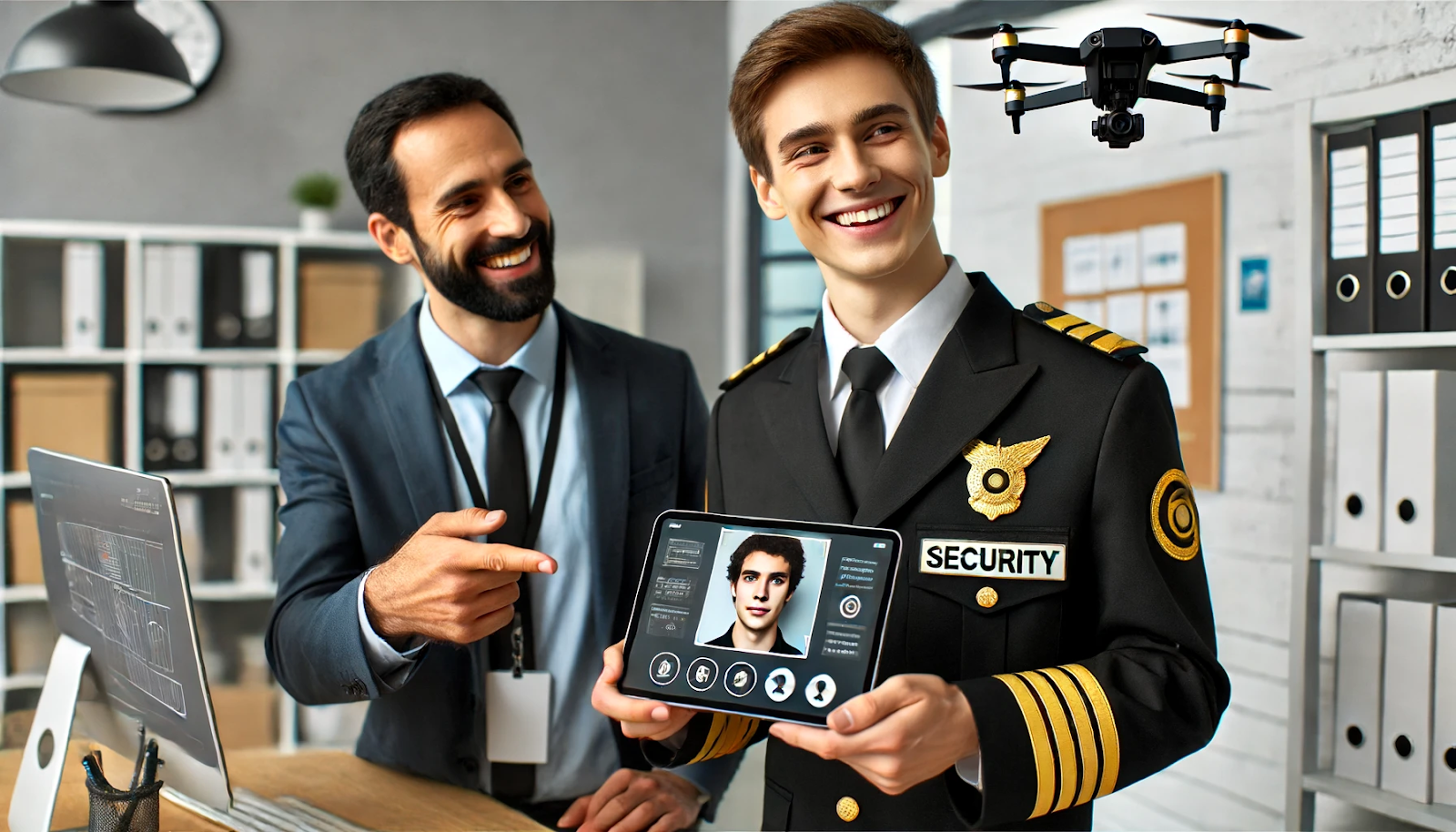Modern security guard services are evolving rapidly, integrating advanced technologies to enhance safety and efficiency. However, these innovations bring along significant privacy concerns that property managers, chief security officers, and security company hiring managers must address. Understanding and balancing these aspects is crucial for maintaining trust and effectiveness in security operations.
The Rise of Modern Security Technologies
Security technology has come a long way from simple surveillance cameras and alarm systems. Today, we have:
- Facial Recognition Systems: Identifying individuals based on facial features.
- Biometric Access Control: Using fingerprints or retinal scans for secure access.
- Drones and Robots: Patrolling and monitoring large areas autonomously.
- AI and Machine Learning: Analyzing patterns and predicting potential security threats.
While these technologies offer substantial improvements in security, they also raise significant privacy issues.
Privacy Concerns in Security Technologies
Facial Recognition
Pros:
- Quick identification of unauthorized persons.
- Improved response times to security breaches.
Cons:
- Potential for misuse or abuse.
- Risk of false positives and discrimination.
- Data storage and consent issues.
Biometric Access Control
Pros:
- High security level due to unique biological traits.
- Reduced risk of theft or loss compared to traditional keys/cards.
Cons:
- Privacy invasion concerns.
- Data breaches involving sensitive personal information.
Drones and Robots
Pros:
- Efficient monitoring of large areas.
- Ability to operate in hazardous environments.
Cons:
- Intrusiveness and constant surveillance.
- Data collection without explicit consent.
AI and Machine Learning
Pros:
- Predictive capabilities for proactive security measures.
- Efficient data analysis for identifying threats.
Cons:
- Potential bias in algorithms.
- Lack of transparency in data processing.
Balancing Security and Privacy
To address privacy concerns while maintaining effective security measures, consider the following strategies:
Transparency
Be open about the technologies in use and their purposes. Provide clear information on:
- Data Collection: What data is collected and why.
- Data Usage: How the data will be used.
- Data Storage: Where and how long the data will be stored.
Consent
Ensure that individuals are informed and give consent where necessary. This includes:
- Signage: Clear signs indicating areas under surveillance.
- Policies: Written policies outlining data collection and usage.
Data Protection
Implement robust data protection measures to safeguard collected information. This includes:
- Encryption: Encrypting data both in transit and at rest.
- Access Controls: Restricting access to authorized personnel only.
- Regular Audits: Conducting audits to ensure compliance with data protection regulations.
Training and Awareness
Educate security personnel and stakeholders about privacy issues and best practices. This involves:
- Regular Training: Keeping staff updated on privacy laws and technology.
- Awareness Programs: Informing all stakeholders about their rights and responsibilities.
Real-World Applications
Case Study: Office Building Security
In an office building, the integration of modern security technologies can enhance safety. However, balancing these with privacy concerns is crucial:
- Facial Recognition: Used for quick identification at entry points, with clear signage and opt-out options for visitors.
- Biometric Access: Implemented for secure areas, ensuring data is encrypted and access logs are regularly reviewed.
- Drones: Employed for after-hours surveillance with data limited to security breaches.
- AI Analytics: Used to monitor unusual patterns, with transparent algorithms and regular bias assessments.
FAQs
Q: How can I ensure the privacy of my employees with biometric access control? A: Use encryption, limit access to data, and regularly review security protocols.
Q: What should I include in my transparency policy? A: Detail data collection methods, usage, storage duration, and access controls.
Q: How often should I conduct data protection audits? A: At least annually, or more frequently if handling sensitive data.
Q: Are there legal requirements for using facial recognition technology? A: Yes, ensure compliance with local and international privacy laws and obtain necessary consents.
Balancing security and privacy is a continuous process requiring vigilance, transparency, and adherence to best practices. By implementing these strategies, property managers, chief security officers, and security company hiring managers can create a secure environment that respects individual privacy.
.png)
.png)
.png)

.png)
.png)

.png)
.png)
.png)
.png)
